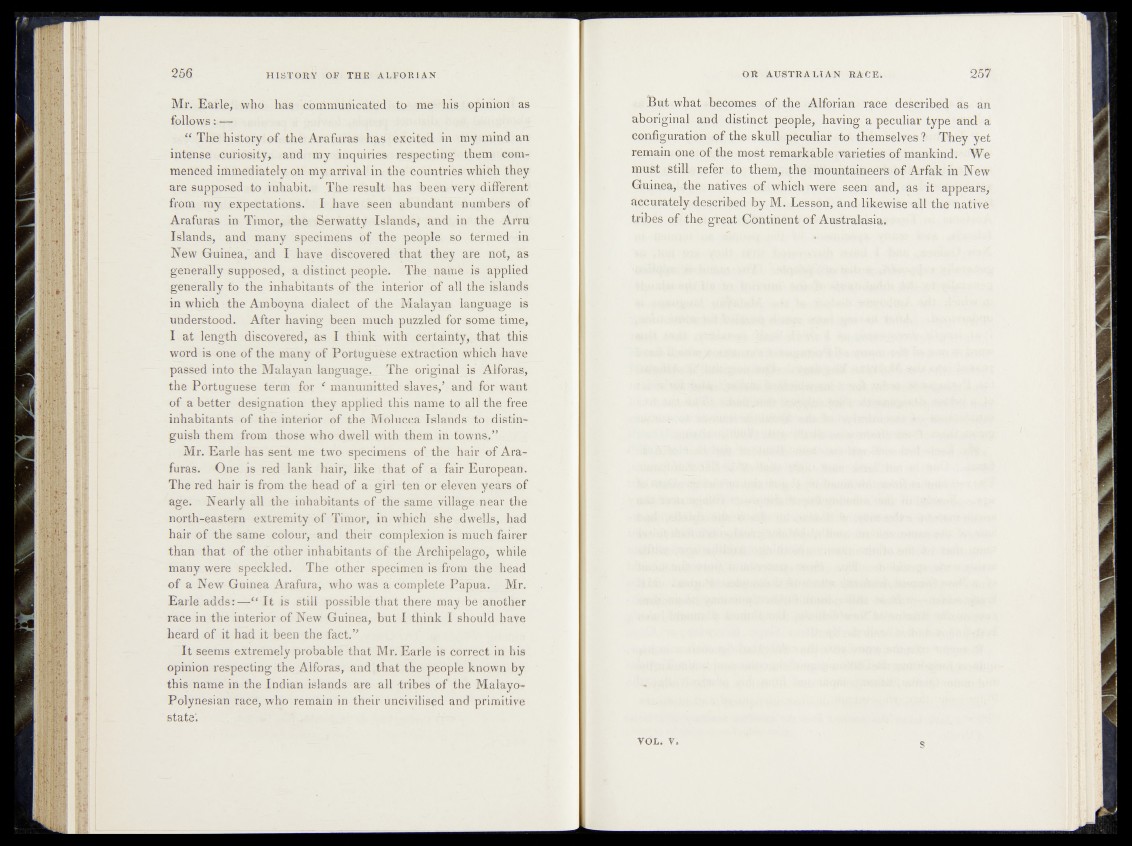
Mr. Earle, who has communicated to me his opinion as
follows:—
“ The history of the Arafuras has excited in my mind an
intense curiosity, and; my inquiries respecting them- com-'
menced immediately on my arrival in the countries which they
are supposed to inhabit.. The result has been- very different
from my expectations. I have seen abundant numbers of
Arafuras in Timor, the Serwatty Islands, and in the Arm
Islands, and many specimens of the people so termed~in
New Guinea,' and I have discovered that they are not, as
generally supposed, a distinct people. The, name is applied
generally to the inhabitants of the interior of all the islands
in which the Amboyna dialect of the Malayan language is
understood. After having been much puzzled for some time,
I at length discovered, as I think with certainty, that this
word is one of the many of Portugufese extraction which have
passed into the Malayan language. The original is Alforas,
the Portuguese term for 1 manumitted slaves,’ and for want
of a better designation they applied this name to all the free
inhabitants of the interior of the Molucca Islands to distinguish
them from those who dwell with them in towns.”
Mr. Earle has sent me two specimens of the hair of Arafuras.
One is red lank hair, like that of a fair European.
The red hair is from the head of a girl ten or eleven years of
age. Nearly all the inhabitants of the game village .near the
north-eastern extremity of Timor, in which she .dwells, had
hair of the same colour, and their complexion is much fairer
than that of the other inhabitants of the Archipelago, while
many were speckled. The other specimen is from the head
of a New Guinea Arafura, who was a complete Papua. Mr.
Earle adds:-—“ It is still possible that there may be another
race in the interior of New Guinea, but I think I should have
heard of it had it been the fact.”
It seems extremely probable that Mr. Earle is correct in his
opinion respecting the Alforas, and that the people known by
this name in the Indian islands are all tribes o f the Malayo-
Polynesian race, who remain in their uncivilised and primitive
state'.
But.whatJaecames of the Alforian race described as an
aboriginal and distinct people, having a peculiar type and a
configuration of the skull peculiar to themselves?' They yet
remain; one$ of .the most remaskaWe¥Varieti@s of mankind. We
must still, refer -to them, the mountameei’SofArfak in New
Guinea, the natives see® and, as-it appears,
eecuBatelyiiescribed; % fed likewise all the native
tribes of the. great Continent: of Australasia,
yol. v.